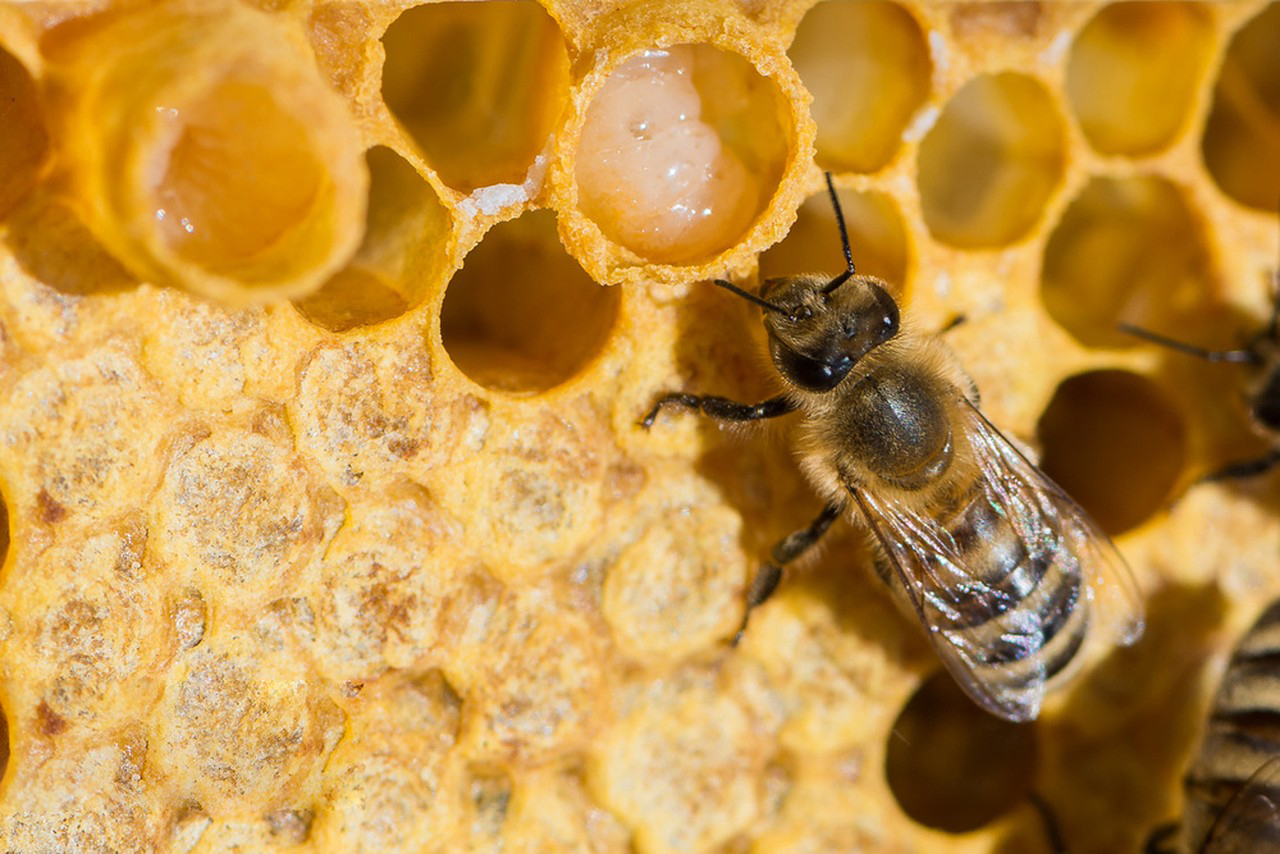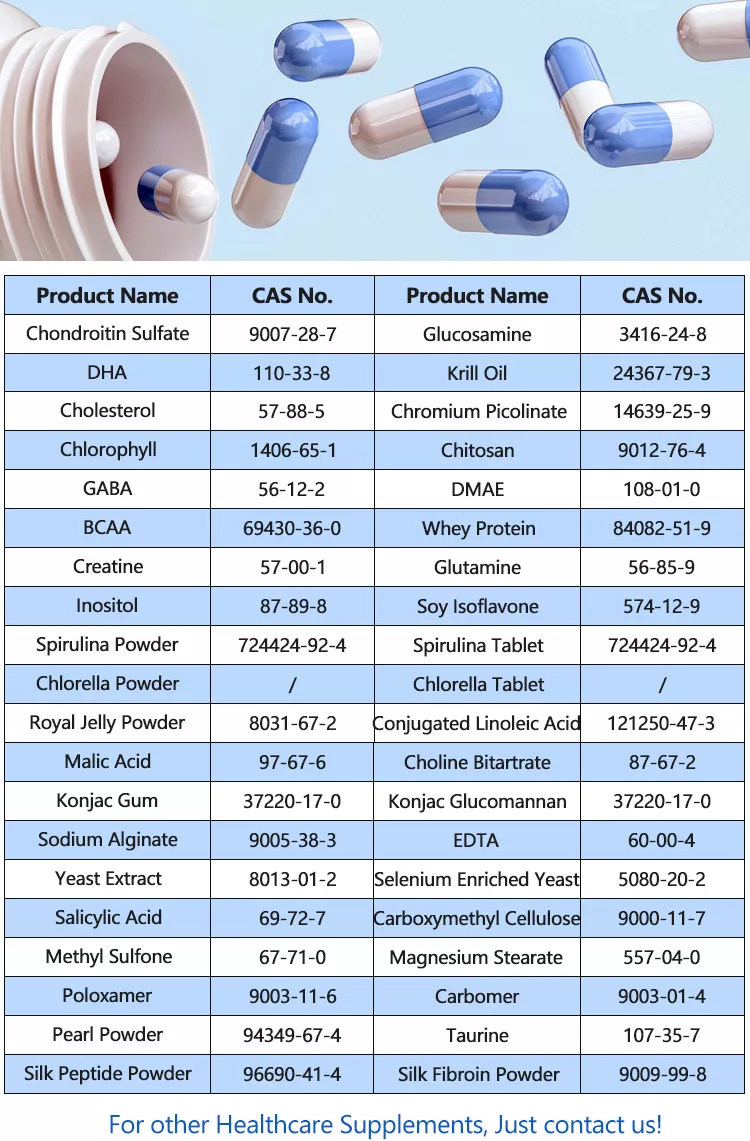Royal Jelly Powder is a unique substance produced by worker bees and fed to the queen bee, which plays a crucial role in her development and longevity. It is a thick, milky-white secretion that is rich in nutrients and is used as the exclusive food source for queen bees throughout their entire life. The basic ingredients of royal jelly include:
1.Water: Royal jelly is primarily composed of water, making up a significant portion of its content.
2.Proteins: Royal jelly contains a variety of proteins, some of which are unique to this substance. These proteins provide essential amino acids for the development of queen bees.
3.Carbohydrates: Royal jelly contains simple sugars, such as glucose and fructose, which provide a quick source of energy.
4.Lipids: It also contains lipids (fats), which include essential fatty acids and sterols.
5.Vitamins: Royal jelly is rich in various vitamins, including B-complex vitamins (such as B1, B2, B3, B5, and B6), as well as small amounts of vitamin C, vitamin A, and vitamin D.
6.Minerals: It contains several essential minerals, including calcium, potassium, iron, zinc, and selenium.
7.Enzymes: Royal Jelly Powder contains enzymes that help with various metabolic processes.

8.Hormones: It contains some hormones, such as juvenile hormone and royalactin, which are believed to play a role in the development and longevity of queen bees.
9.Antibacterial and antimicrobial compounds: Royal jelly contains substances that help protect the queen bee from infections.
10.Growth factors: These are proteins that contribute to the growth and development of queen bees.
Royal jelly’s exact composition can vary depending on factors like the bee species, the age of the worker bees producing it, and environmental conditions. Due to its rich nutritional content, royal jelly has been studied for its potential health benefits and is often used in dietary supplements, cosmetics, and traditional medicine. However, its effects on human health are still a subject of ongoing research and debate.
Effects and Functions of Royal Jelly Powder
Royal Jelly Powder is a substance produced by worker honeybees and is used as a nutrient-rich secretion to feed the queen bee and developing larvae in a beehive. It is a unique substance with various potential effects and functions, although scientific evidence supporting many of these claims is still limited. Here are some of the commonly attributed effects and functions of royal jelly:
1.Nutrition: Royal jelly is highly nutritious and contains proteins, vitamins (B-complex vitamins), minerals, and sugars. It serves as the primary food source for queen bees throughout their entire life and for young larvae in their first few days of development.
2.Queen Bee Development: One of the most well-known functions of royal jelly is its role in the development of queen bees. Larvae that are fed royal jelly exclusively during their development will grow into queen bees, which are larger and have longer lifespans than worker bees.
3.Potential Health Benefits: While research is ongoing, royal jelly has been studied for its potential health benefits. It is claimed to have antioxidant and anti-inflammatory properties, which may contribute to its potential effects on health. Some potential benefits include:
Immune system support.
Anti-aging effects.
Improved skin health.
Enhanced cognitive function.
Potential anticancer properties.
4.Energy and Vitality: Some people take royal jelly supplements for an energy boost and increased vitality, though scientific evidence supporting these claims is limited.
5.Skin Care: Royal Jelly Powder is sometimes used in skincare products due to its potential skin-improving properties, including moisturizing and anti-aging effects.

6.Hormonal Regulation: It has been suggested that royal jelly may have a role in hormonal balance, potentially helping with issues related to the endocrine system.
7.Allergies and Asthma: Some individuals believe that royal jelly may help alleviate allergy symptoms and asthma, but this is not strongly supported by scientific evidence.
8.Wound Healing: In traditional medicine, royal jelly has been used topically to aid in wound healing, though its effectiveness is debated.
9.Hair Health: Some haircare products contain Royal Jelly Powder due to the belief that it can help improve hair health and stimulate hair growth.
It’s important to note that while royal jelly is widely available as a dietary supplement and in various cosmetic products, the scientific evidence supporting many of these claimed benefits is often limited or inconclusive. As with any supplement or natural remedy, it’s advisable to consult with a healthcare professional before using royal jelly for any specific health purposes, especially if you have allergies or other medical conditions, as it can cause allergic reactions in some individuals.
